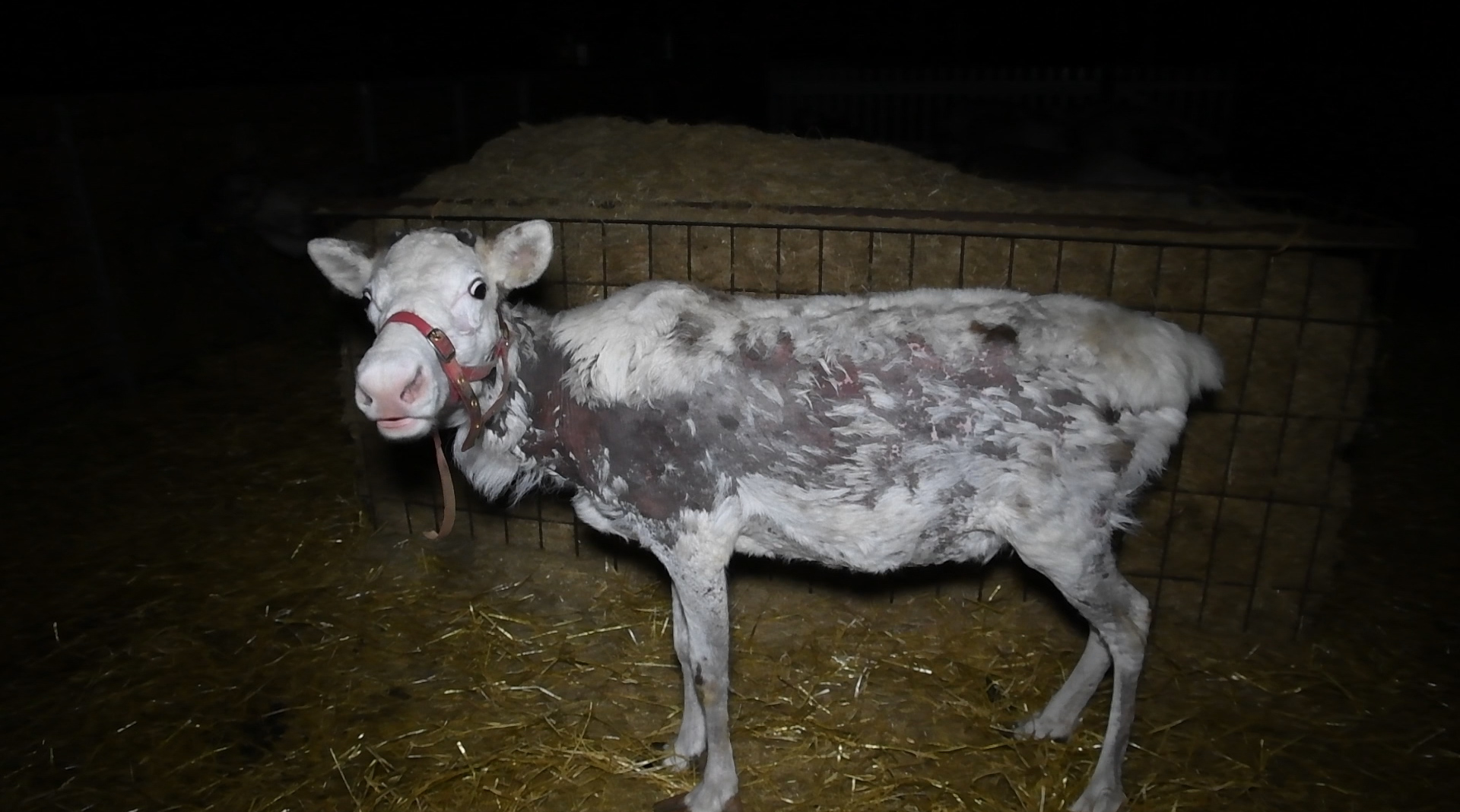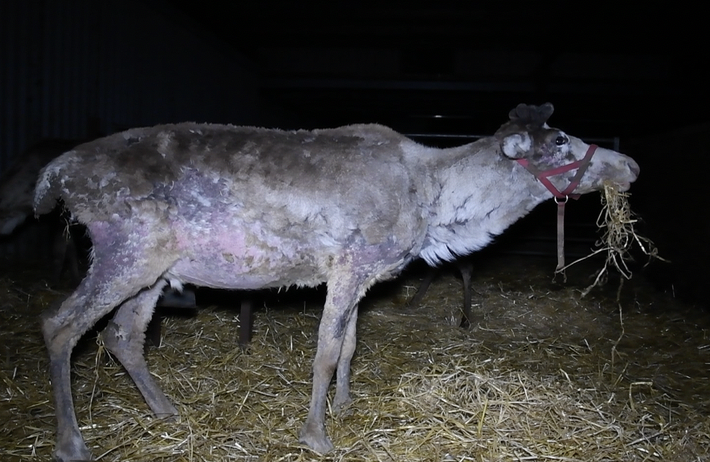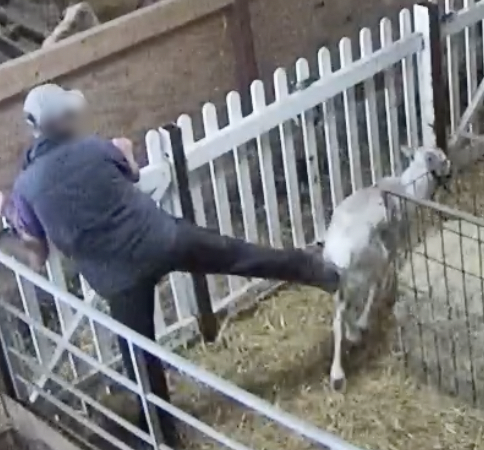Every winter, it is an extremely popular pastime to go to reindeer farms and petting zoos. People want to get in the festive mood, and reindeer are a magic symbol of the holidays for many. The truth is however, the lives of these reindeer is not at all magical. In fact, it’s a painful and miserable existence—even at small farms. This is in part due to the seasonal and impermanent nature of their presence, and in part due to the fact that most don’t realize what’s happening and so it’s easy and cheap to treat the reindeer without any care.

In the U.K. alone, 1,500 reindeer are utilized as holiday attractions—despite the fact that they don’t belong there. Reindeer are native to the arctic regions of the world, including Finland, Canada, and Russia. Their bodies are meant for colder, less humid climates, where they can roam wildly over large distances.
While in captivity, especially in small facilities, they cannot interact with other reindeer naturally, or carry out their innate behaviors—like roaming. They exist as props, and are treated as such.
With the reindeer activities becoming more and more popular (surely due to social media, with many influencers posting festive pictures of them with captured reindeer), the animals are transported in tiny cages over far distances. They are subjected to alarming and loud noises, crowding, too much human interaction, lack of personal space, and blinding lights—none of which are natural or comfortable for them to experience.
With the folklore surrounding the animals, people often want to take sleigh rides. The reindeer will pull many people at a time, which is painful and exhausting for them—not only because this isn’t something they are naturally doing in the wild, but because of their harsh living conditions making them weak and unable to perform the task as people want them to.

Because of these harsh conditions and brutally unnatural labor they are forced to do, reindeer in captivity generally suffer greatly when it comes to their physical well-being (and mental well-being, no doubt). Their skin becomes raw, exposed, and diseased. Their skeletal frames develop abnormalities since they aren’t meant to pull people around in sleighs. Since they are kept from their natural roaming behaviors, their hooves grow too long, making them weak and unable to walk. In such cramped conditions, they also suffer from fatal diseases, high rates of calf mortality, and damaged antlers.
Many undercover investigations in the U.K. (a recent large one having been led by Animal Aid U.K.) have also found that even on small farms, workers kick and shout at the reindeer, causing trauma and pain. They are also deprived of their natural diet and the company of a herd—both things that help them survive in the wild, both physically and emotionally.

This is a painful and short life for the reindeer, and it’s not something that anyone should support. More people need to know about the facts concerning these reindeer farms and events. There are so many other options as far as festive activities go, and none of them require the suffering of another being. Decorating a tree in the forest with snacks for birds, stringing cranberries to hang on your Yule tree, baking vegan holiday cookies, watching Christmas movies, and doing charity work are all great ways to celebrate the season, and can easily replace a trip to a reindeer attraction.
This cruel practice needs to stop, and a great way to help with that is to sign petitions that demand the freeing of the animals. Speak out about the cruelty, share articles that lay out the studies, donate to reindeer sanctuaries in the arctic, and educate those who post about attending the reindeer events. Your voice matters, but most importantly—remember to not attend reindeer attractions.
Also by Emily: How Scandinavians Stay Balanced & Happy During The Winter Darkness
Get more like this—Sign up for our daily inspirational newsletter for exclusive content!
__
Photo: Animal Aid U.K.




